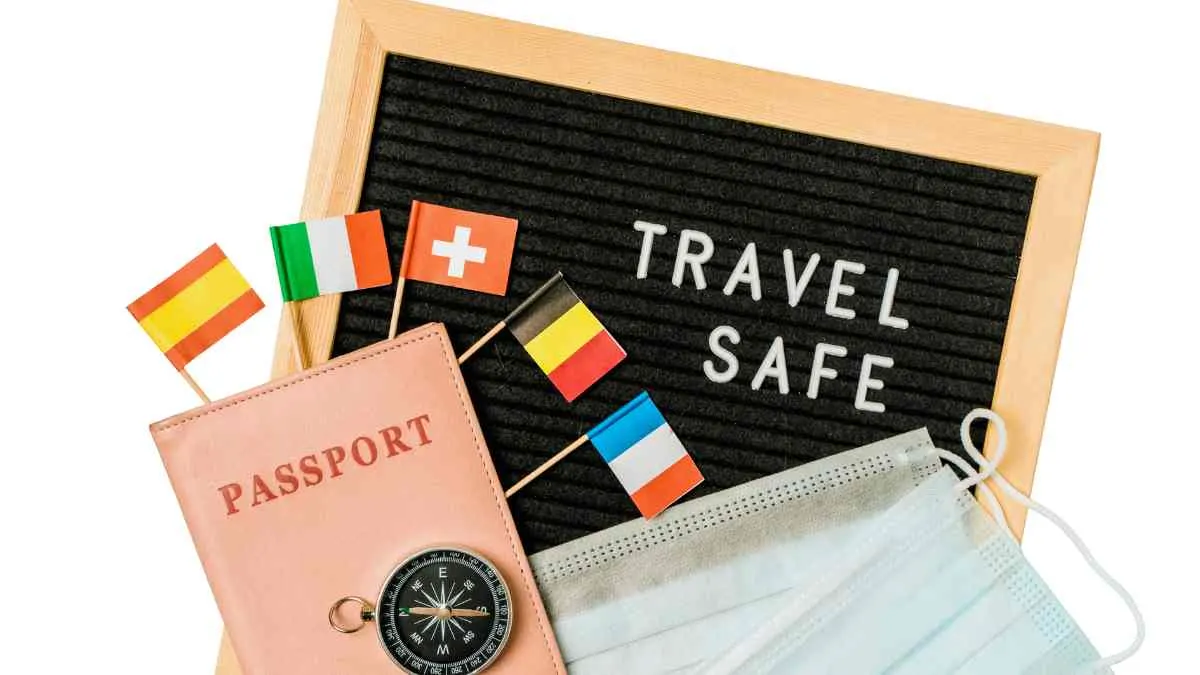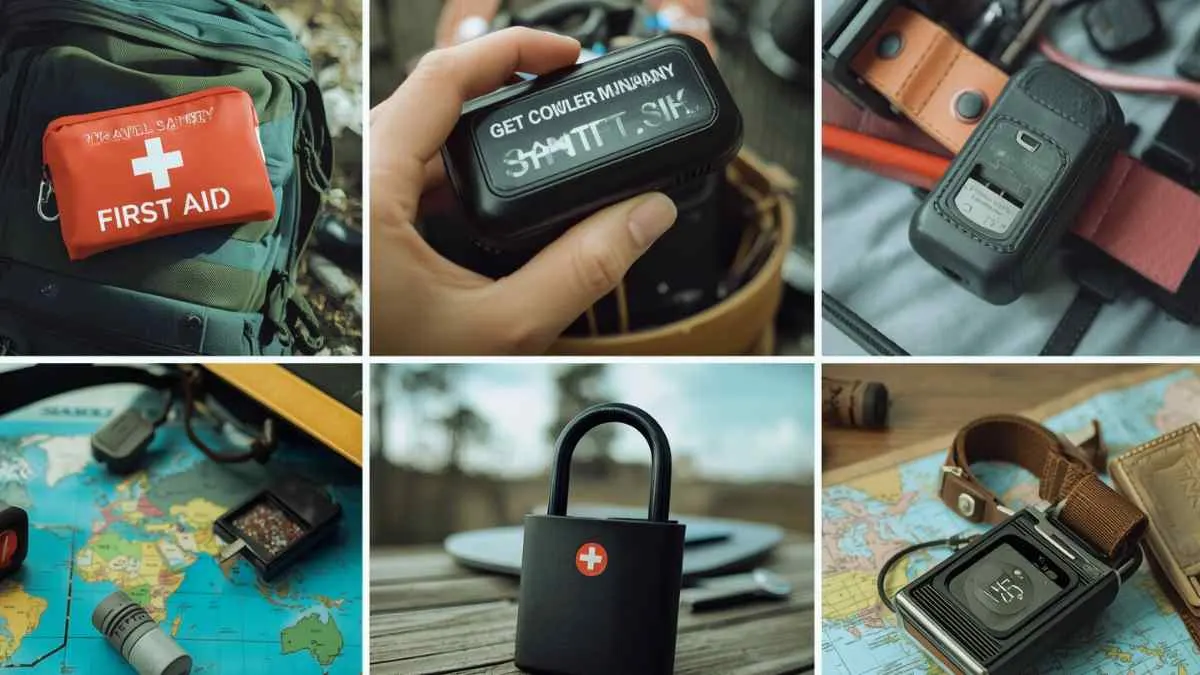Travel is exciting, transformative, and full of memorable experiences.
But it also comes with its share of risks.
If you’re heading on a short weekend getaway or a long‑haul international adventure, knowing how to Travel Safety Tips is key to enjoying your journey without unnecessary stress.
Friends, Below is a detailed guide to solid travel safety habits, plus ads (for relevant services) and FAQs to round things out.

Why Travel Safety Matters:
Travel safety isn’t about being paranoid—it’s about being prepared. According to (CDC), “Through planning and research you can avoid or be prepared for many of the common issues you might face when adjusting to a different environment overseas.”
Also, expert blogs emphasise that many travel‑related problems (scams, thefts, accidents) come from lack of preparation rather than inherently dangerous destinations.
When you travel safely:
-
You reduce the risk of theft, scams, accidents or health emergencies.
-
You gain more freedom to explore confidently.
-
You protect your finances, identity and personal well‑being.
-
You open up space to enjoy your travel experience rather than worry.
Top Travel Safety Strategies:
Here are key strategies you should apply before, during, and after your trip to maximise safety.
1. Before You Go
Research your destination
Check official travel advisories, local laws, cultural norms, and terrain/transportation. The U.S. State Department’s “Safety Tips for Activities” offers practical guidance for travellers abroad. Also, the CDC’s “Survival Guide to Safe and Healthy Travel” emphasises checking destination‑specific health and safety concerns.
Share your itinerary and register
Share your trip plan with friends or family. Many guides recommend registering with your country’s embassy or consulate and letting people know your whereabouts.
Get travel insurance and ensure your medical coverage
Don’t assume your home health insurance applies overseas. The CDC notes: “Make sure you have a plan to get care overseas, in case you need it.”
Pack smart & protect your documents
Make digital and physical copies of your passport, ID, travel insurance, and credit cards. Carry them separately from originals. Also, pack travel‑appropriate gear (first‑aid kit, insect repellent if needed, etc).
2. On the Ground: Staying Vigilant
Protect your belongings and avoid being a target
Petty theft and pickpocketing top the list of traveller hazards. Use bags worn across your body, keep valuables out of plain view, avoid carrying all cash/cards in one place.
Transport & road safety
Traffic accidents claim many lives overseas. The CDC emphasises being alert when crossing streets, checking local driving customs, using reputable transport.
Stay aware of scams and local risks
Every destination has its own set of common scams or risky behaviours. One blog states: “Learn common travel scams … every country has its own special scams to watch out for.”
Mind your health & habits
Don’t let joy turn into risk: keep your wits about you, avoid excessive drinking in unfamiliar settings, stay hydrated, protect against local illnesses. Worldpackers highlights: “Drink responsibly… keep an eye on your drink at all times” especially when abroad.
Use tech smartly and securely
Ensure your phone is usable overseas, have local SIM or roaming, back up important files, use strong passwords, perhaps a VPN for public WiFi. Latest travel‑safety guides emphasise digital security.
3. Accommodation & Nighttime Safety
-
Always inspect your room (e.g., door locks, windows, emergency exit routes). Some travel‑security blogs recommend always knowing your “exit” from a room or building.
-
Use hotel safes for valuables; avoid leaving passports, expensive gear in plain view.
-
At night or in unfamiliar neighbourhoods: stay in well‑lit areas, avoid isolated paths, keep someone informed of your location.
4. Emergencies & Being Prepared
-
Know local emergency numbers (e.g., police, ambulance).
-
Save contact details of your country’s embassy or consulate.
-
Keep a small stash of emergency cash and a backup credit card.
-
If a situation feels wrong—trust your instincts and get out. Many guides say “Trust your instincts” is one of the most effective safety rules.
Read Next: Is It Safe To Travel To Sri Lanka
Travel Safety Checklist:
Here’s a quick checklist you can reuse every time you travel:
-
Destination researched (culture, risks, transport)
-
Travel insurance in place
-
Itinerary shared with at least one trusted person
-
Passport/ID copies made
-
Money/cards distributed safely
-
Bag/valuables secure
-
Local transport vetted
-
Day/Evening plan known
-
Emergency contacts saved
-
Health precautions taken
Ads / Sponsored Content:
Travellers’ Insurance Package
Worried about medical emergencies or trip cancellation? Get a comprehensive travel insurance plan covering health, evacuation, trip interruption and luggage loss. Travel with peace of mind.
Secure Travel Gear Bundle
From slash‑proof backpacks to RFID‑blocking wallets and portable door alarms—we’ve curated must‑have travel safety gear for your next adventure. Protect your belongings and feel confident on the road.
Travel Safety App Subscription
Stay updated with local alerts, pay‑as‑you‑go VPN access, secure travel document storage and emergency hotline support—all in one mobile app designed for smart travellers.
(FAQs)
Q1: Is travel insurance really necessary?
Yes — very much so. Many travellers underestimate health or removal costs when abroad. Insurance is your safety net. The CDC recommends “Plan for unexpected health and travel issues” and making sure your plan includes abroad coverage.
Q2: What is one of the most common mistakes travellers make?
Complacency. Many bad outcomes come from being in a lovely location and letting guard down. For instance, wearing valuables in plain view, or not checking transport safety. As one travel guide puts it: “Stop using your back pocket” for valuables.
Q3: How do I stay safe in unfamiliar destinations?
Do your homework: understand basic customs, transport systems and risk factors. Ask locals for safe neighbourhoods. Use vetted services. Keep things simple and measurable (e.g., don’t try extreme adventure without preparation).
Q4: What if I am travelling solo, especially as a woman?
Solo travel can be empowering, but extra vigilance is needed. Use reputable accommodations, avoid walking alone at night, share your location, trust your gut. Organisations like RAINN provide specialised tips for vulnerable travellers.
Q5: I’ve heard road/vehicle accidents are a big risk abroad—is that true?
Yes. The CDC notes that in many countries motor‑vehicle crashes are one of the leading causes of death for healthy travellers. So if you plan to drive or ride (e.g., motorcycle), make sure your skills, equipment and local conditions match.

